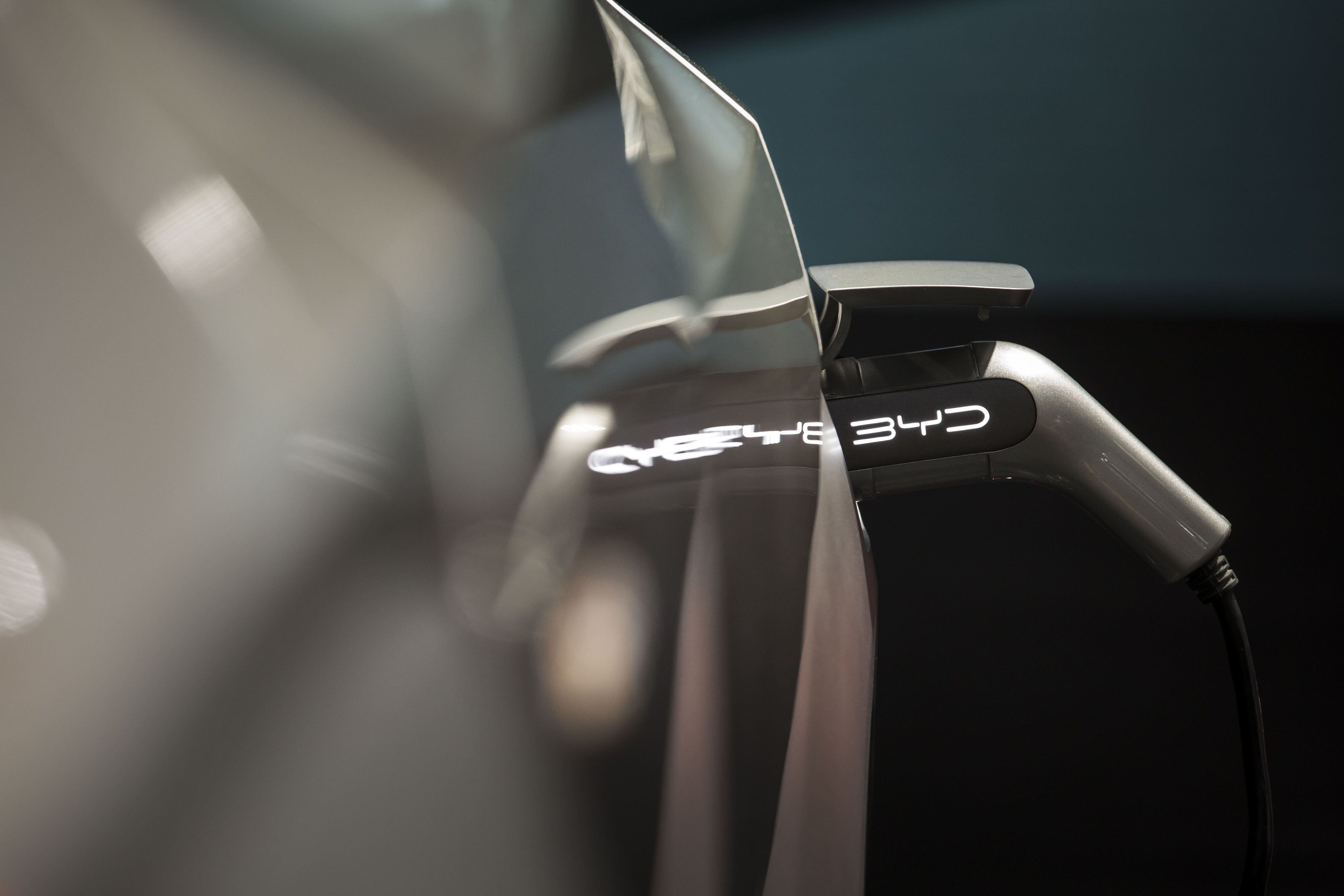
Chinese electric vehicles are in the crosshairs of the European Union, which announced on Thursday the provisional adoption of additional tariffs of up to 38% to curb their expansion and protect European manufacturers.
What prompted the EU to take this decision and what can Beijing do?
A boom driven by subsidies
The Chinese government says it spent more than 200 billion yuan ($27.5 billion) on subsidies and tax breaks tied to the purchase of an electric vehicle between 2014 and the end of 2022.
This has been a boost for Chinese manufacturers, especially compared to their American rivals, which receive fewer subsidies.
They also benefited from rising domestic demand: 69% of electric vehicles delivered worldwide in December were sold in China, according to research firm Rystad Energy.
Exports have also soared. According to the American think tank The Atlantic Council, global sales of Chinese electric vehicles are expected to increase by 70% in 2023.
And almost 40% of these exports went to the European Union, which has become the largest buyer of Chinese vehicles.
BYD, number one in the sector
BYD is the leading company in the sector in China. In 2023, it posted record profits and announced its intention to be among the top five automotive groups in Europe.
According to state media, the other Chinese manufacturers that export the most electric vehicles to Europe are SAIC, MG Motor and Polestar.
Concern in the EU
Electric vehicles from Chinese factories accounted for almost 22% of the European market last year, up from 3% three years earlier, according to the European Automobile Manufacturers Association (ACEA).
The EU denounces a “unfair subsidy policy” which he considers “a threat” for European manufacturers.
Following nearly nine months of investigation, the EU will impose tariffs of 17.4% on BYD, 19.9% on Geely, and customs duties of 37.6% on SAIC.
Other manufacturers that cooperated in the investigation are subject to average tariffs of 20.8%, while for companies that did not cooperate the tariff rises to 37.6%.
The EU has four months to adopt this measure definitively, which leaves a window open for negotiations with Beijing.
Possible Chinese retaliation
China announced in mid-June that it would “reserved the right” to file a complaint with the World Trade Organization (WTO), promising “take all necessary measures to defend the rights and interests of Chinese companies”.
However, he did not reveal any immediate countermeasures.
In January, Beijing announced an investigation into all spirits imported from the European Union.
Wine, dairy products, pork and vehicles with large engines are also in Beijing’s sights, according to Chinese state media.
The Chinese “They will retaliate, that’s for sure“, Tu Le of the specialist consultancy Sino Auto Insights told AFP, citing as possible targets “Luxury goods and French and Italian wines”.
Impact on sales
According to an estimate by the German Kiel Institute, these additional tariffs could lead to a 42% drop in imports of electric vehicles from China.
There will be a “short term drop“, agreed Gregor Sebastian, an analyst at Rhodium.
“It will be a challenge”, for Chinese manufacturers, the specialist added, pointing out that in 2023-2024, 40% of Chinese electric vehicle exports were destined for the EU.
Source: Gestion
Ricardo is a renowned author and journalist, known for his exceptional writing on top-news stories. He currently works as a writer at the 247 News Agency, where he is known for his ability to deliver breaking news and insightful analysis on the most pressing issues of the day.












